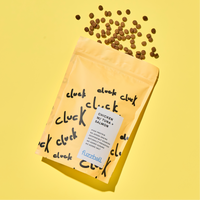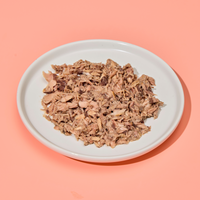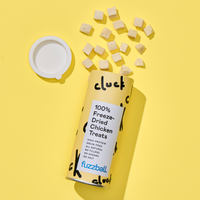How to Tell If Your Cat’s Dry Food Meets Their Nutritional Needs

Not all dry cat food is created equal, and your cat definitely knows it. While they might seem content crunching away, what’s actually in that bowl can make a big difference to their energy, coat, digestion, and long-term health. From hidden fillers to lack of essential nutrients, the wrong dry food could leave your feline friend missing out on what they really need to thrive. It’s time to decode the label and give your cat the goodness they deserve, without the guesswork.
What Are the Essential Nutrients Cats Need?
Dietary components known as nutrients carry out specific functions in your cat’s body. Numerous foods can provide cats with the nutrients they need. For instance, bone, bone meal, dairy products, organ tissues, meat, legume plants, and mineral supplements are all sources of calcium, and vitamins.
Nutrients fall into one of six categories:
1. Protein
2. Fat
3. Carbohydrate
4. Vitamin
5. Mineral
6. Water
Although it isn't strictly a food, energy is a vital component of a cat's diet. Dietary energy is derived from fats, proteins, and carbohydrates and is expressed in kilocalories, commonly known as calories.

How Much Protein Does My Cat Need?
Cats need to eat a lot of protein; on a dry matter basis, their food should include at least 40% protein. This indicates that their protein requirements are far higher than those of dogs or people.
Which Vitamins Do Cats Need?
In order to make sure your cat gets all the vitamins they need, your dry cat food should contain the following vitamins:
Vitamin A
Important for vision, bone and tooth growth, reproduction, and maintenance of skin and mucous membranes.
Vitamin D
Increases blood calcium and phosphorous levels to support growth and maintenance of bones.
Vitamin E
Vitamin E is an important antioxidant for your cats health as it helps protect cell damage, boosts the immune system and keeps your cats coat shiny.
Taurine
Taurine plays a vital role in your cats vision, heart health, digestive system, and immune system.
How to Tell If Your Cat’s Dry Food Meets Their Nutritional Needs
To tell if your cat’s dry food meets their nutritional needs, start by checking the label for a statement confirming the food is “complete and balanced.” This means it provides all the essential nutrients your cat needs. Look for high-quality protein sources, like chicken or salmon, as the first ingredient, and ensure it contains taurine, an essential amino acid for cats. Monitor your cat’s coat, weight, energy levels, and digestion. A shiny coat, healthy weight, and regular litter box habits are all signs their diet is on the right track.
What Dry Cat Food Ingredients Should I Avoid?
Ingredients such as meat by-products, cereals, artificial colours and flavours, and certain chemical preservatives should be avoided when you choose dry cat food.
A closer look at ingredients to stay away from is provided here:
Meat By-products
Meat-by products should be avoided when choosing your cat food. These can be a mystery source of protein and may include lower-quality animal parts.
Grains (Corn, Wheat, Soy)
While cats can digest these types of carbohydrates, cats are obligate carnivores and don't need them in their diet.
Artificial Colours and Flavours
Avoid artificial colours and flavours completely. These additives serve no nutritional purpose and may cause allergic reactions.
Chemical Preservatives (BHA, BHT, Ethoxyquin)
Chemical preservatives can be commonly found in cat food, however should be avoided. These are used to preserve food but have been linked to potential health problems.
Added Sugars
Cats require high-protein diets and should not be intaking additional sugars. These can contribute to obesity and dental problems.
Ingredients vs. Nutrients: What to Look for on a Label
When it comes to cat food, both ingredients and nutrition are crucial. Each component contributes a distinct set of nutrients to your cat's diet, which work together to create a comprehensive and well-balanced diet that gives them all the nutrients they need in the correct amounts.
Some cat parents may be searching for cat food that is high in protein due to the hype around high-protein diets. However, unless your veterinarian advises you that your pet needs a high-protein diet, extra protein is not always a good thing, even if it is an essential component for cats. Fuzzball's food is all high in protein, we do not want to say a high protein diet is only a requirement if your vet advises it. Rather, like any other ingredient or vitamin, it should be properly balanced to the optimal levels for your cat. In addition to protein, your cat needs other nutrients to keep healthy.




